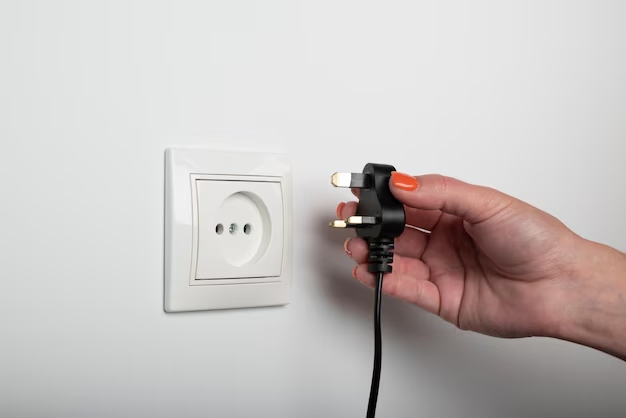Understanding BIS Standards for Plugs and Sockets IS 1293: A Guide for Manufacturers and Consumers
When it comes to electrical appliances, ensuring safety, compatibility, and efficiency is crucial. One of the key aspects of this is the BIS standards for plugs and sockets. In India, the Bureau of Indian Standards (BIS) plays a vital role in ensuring that electrical products, including plugs and sockets, meet strict safety, quality, and performance benchmarks. The standard governing plugs and sockets in India is IS 1293: 2019.
At Indian Nexus, we specialize in assisting manufacturers with the certification and compliance process for electrical products. In this blog, we will break down what IS 1293 is, why it’s important, and how manufacturers can ensure their products comply with the standards.
What is IS 1293: 2019?
IS 1293: 2019 is the Indian Standard for 3-pin plugs and socket outlets for household and similar electrical appliances. The standard sets out the specifications for design, safety, and performance of plugs and sockets used for connecting electrical appliances to the power supply in India. This standard is crucial for manufacturers to ensure that their products are safe, durable, and reliable.
The BIS certification mark is a mark of quality and safety. Products bearing the BIS mark are ensured to comply with IS 1293, which guarantees that they meet the necessary requirements for electrical safety.
Why IS 1293 Matters for Manufacturers
The IS 1293 standard is designed to ensure the electrical safety and efficiency of plugs and sockets used in homes and workplaces. Compliance with these standards is mandatory for manufacturers looking to market electrical products in India. Here are some key reasons why IS 1293 is important for manufacturers:
Ensuring Consumer Safety: The primary objective of IS 1293 is to protect consumers from electrical hazards like electric shocks, short circuits, or even fires caused by substandard electrical products. The standard ensures that plugs and sockets are designed to withstand high temperatures, pressure, and wear and tear over time.
Regulatory Compliance: In India, the BIS certification is a legal requirement for selling electrical appliances. Manufacturers need to ensure that their plugs and sockets meet the requirements of IS 1293 to legally sell their products in the market.
Improved Product Quality and Durability: By adhering to IS 1293, manufacturers are not only ensuring compliance with legal regulations but also guaranteeing that their products are of high quality and durable. The standard defines the materials, construction, and performance expectations, ensuring that products will function safely and efficiently over time.
Market Acceptance: Consumers are more likely to trust and purchase products that have been tested and certified by a recognized authority. The BIS certification adds credibility to the product, leading to better market acceptance.
Global Standards Compliance: Following the IS 1293 standard can also help manufacturers align their products with global standards. As businesses expand and seek international markets, having products that comply with international safety and performance standards can be advantageous.
Key Requirements of IS 1293 for Plugs and Sockets
The IS 1293 standard outlines several important aspects of plugs and sockets, including:
Design and Configuration: The standard specifies the configuration of the pins and socket holes. Plugs must have three pins: two for live and neutral connections and one for grounding (earth). The size, shape, and arrangement of the pins must be consistent to ensure compatibility with the socket and prevent mismatches.
Material Specifications: The materials used in the manufacturing of plugs and sockets must be non-combustible, durable, and able to withstand the mechanical stresses of regular use. These materials must also be insulating to prevent electrical shocks.
Voltage and Current Ratings: The IS 1293 standard specifies the voltage and current ratings for plugs and sockets to ensure they can safely handle the electrical load. Typically, in India, most household plugs and sockets are designed to handle 220-240V AC with varying current ratings such as 6A, 10A, and 15A.
Insulation and Safety Features: Plugs and sockets must be properly insulated to prevent electrical shocks. The standard mandates that all exposed conductive parts are insulated and that there is proper earthing (grounding) for safety. Additionally, the design should incorporate safeguards to prevent accidental contact with live parts.
Durability and Mechanical Strength: The plugs and sockets should be designed to withstand frequent use, including plugging and unplugging. The materials and construction should allow for safe operation over an extended period without risk of damage.
Shutter Mechanism: In some variants, IS 1293 requires that socket outlets be fitted with a shutter mechanism. This mechanism ensures that the socket holes are protected when not in use, preventing foreign objects from coming into contact with live pins, which could lead to electrical hazards.
How to Ensure Compliance with IS 1293
For manufacturers, achieving BIS certification for plugs and sockets can be a complex process, but it is absolutely necessary to ensure that products comply with IS 1293 and are legally allowed in the Indian market. Here’s a quick guide on how you can ensure compliance:
Testing: The first step is to have your plugs and sockets tested in a BIS-accredited laboratory. The tests will assess various aspects, including electrical safety, durability, and performance.
Documentation: Prepare the necessary documentation that outlines your product’s specifications, test results, and manufacturing processes. This documentation will be required for your BIS certification application.
BIS Certification Application: Submit the required application along with your test reports and documents to the Bureau of Indian Standards. The BIS will review your submission, and if your product meets the necessary requirements, it will be granted the BIS certification mark.
Regular Audits: Once certified, your product will be subject to periodic inspections and audits to ensure that it continues to meet the standards. It’s crucial to maintain the quality of your products to avoid losing the certification.
Work with a Consultant: Navigating the BIS certification process can be complicated. Working with an experienced consultant like Indian Nexus can help simplify the process. We assist manufacturers in obtaining the necessary approvals, conducting the required tests, and ensuring compliance with IS 1293.
Conclusion
The IS 1293 standard for plugs and sockets is an essential regulatory framework designed to ensure the safety, performance, and durability of electrical products in India. For manufacturers, compliance with this standard is mandatory to ensure market acceptance, consumer safety, and legal conformity.
At Indian Nexus, we specialize in helping manufacturers navigate the BIS certification process. Whether you need guidance on testing, documentation, or certification, we’re here to help ensure that your products meet the necessary standards for the Indian market.
Stay ahead of the competition by ensuring that your electrical products comply with the IS 1293 standard. Contact Indian Nexus today to learn more about how we can help your business meet regulatory requirements and achieve BIS certification.











